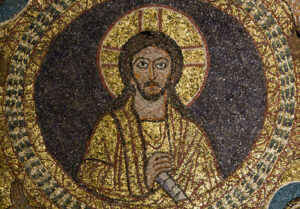The logic of capital shines through as commentators, apparently dispassionately, ask whether saving lives is ‘worth’ damage to ‘the economy’. Yet for all that this question is disgusting, capitalism is a system that places profit above human need, and it will not cope well with the shifts in economic activity needed to combat the virus. We face a global downturn on at least the scale of the 2008-9 financial crisis. And whilst COVID-19 is on all our minds at the moment, it is far from being the only place where we see a mismatch between the needs of capital and the needs of life. We see the same, with potentially far more catastrophic consequences, in the damage being done by capital’s relentless pursuit of profit to the natural environment.
Capitalism has to go. I take this to be common ground amongst the readers of The Bias Magazine, and I won’t argue the case more than I have done in the preceding paragraph. My interest is in suggesting that Christians who want to contribute to our moving beyond capitalism would do well to pay attention to Marx and Marxism. Making a case to this effect was one half of my purpose in writing Church and Revolution. (The other half was trying to show secular leftists that religious people needn’t be reactionaries!)
Why should left-wing Christians take an interest in Marx, a notorious atheist, whose writing about religion is minimal? Don’t we have our own resources? Can’t we pursue an exclusively Christian socialist agenda, based alone in the gospels, without needing to rely on non-Christian thought, let alone on Marx?
Tempting though this line of thought is, it is fundamentally confused. It misunderstands the kind of thing the gospel is: there is no distinctively Christian way of understanding, say, the economy, of explaining recessions or booms, of tracing the class structure of society, and so on. Christianity certainly has something to say about all these phenomena, namely that they occur in a world created and loved by God, fallen into sin, yet called to the fullness of the Reign of God.
But this kind of theological interpretation is not talking at the same level as an economic theory, and doesn’t offer concrete guidance to a Christian activist who might be wondering how to respond to pay negotiations at her workplace or which policies to promote within a political party. Here there is no alternative to rely on the most systematic and well worked out ideas shared with people of all faiths and none. And on the left, Marxism has a unique place as an intellectual tradition with the potential to be the source of action-guiding ideas.
That said, there are more interesting reasons why Christians (and other believers in God) should attend to Marx. Marx does have a criticism of religion: he thinks that our concepts of God, and other religious concepts (such as those relating to an afterlife) are projections arising out of alienated social circumstances. He thinks that God, thus conceived, competes for agency with human beings, so that the more we invest in God the less powerful we take ourselves to be. If we are honest, we should recognise this as an accurate critique of much existing Christianity.
In my book, I argue that Christians ought to welcome Marx’s critique of religion, regarding it as a tool for unmasking idolatrous concepts of God in the cause not of atheism but of faith in the transcendent creator God. God, for a significant tradition of Christian thought (I focus especially on Aquinas) is not simply one more object in the world, a thing that competes for metaphysical space with other things. God is present to us as our creator, constantly and intimately. Far from impeding our freedom, God is the very ground of it. It is not the case that the more we invest in God the less we have left over for ourselves. From the standpoint of this tradition, it is a sad fact that so much Christianity does work with the idea of God as a Big Person onto whom we can offset responsibility.
But – and here Marx issues a useful reminder – this idolatrous theology isn’t simply the product of wrong ideas, to be combated in the lecture theatre and from the pulpit. It is produced, in no small part, by capitalism. Alienated human beings seek to resolve their alienation religiously. The god of popular idolatry is, as Marx puts it, the imaginary sun we revolve around when we cannot revolve around ourselves. Capitalism and idolatry are mutually complicit.
Both as a source of social criticism and as a resource for our own theology, then, Marxism has much to offer the Christian left. My hope is that we will make good use of it as these interesting political times progress.
Church and Revolution: Continuing the Conversation Between Christianity and Marxism is now out with Sacristy Press. Simon Hewitt is a labour movement activist and a Research Fellow at the University of Leeds.
◆ ◆ ◆
Did you appreciate this article? Please consider making a donation to help us continue to build a new voice for the Chistian Left. Click here to donate today.



